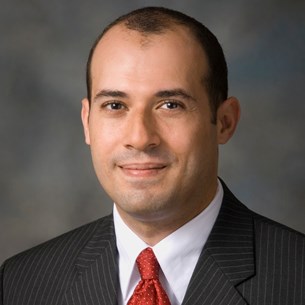Meeting
2020 ASCO Virtual Scientific Program

GI Medical Oncology Department, The University of Texas MD Anderson Cancer Center, Houston, TX
Ahmed Omar Kaseb , Hop Sanderson Tran Cao , Yehia I. Mohamed , Aliya Qayyum , Luis M. Vence , Jorge M. Blando , Shalini Singh , Sunyoung S. Lee , Kanwal Pratap Singh Raghav , Lina Altameemi , Asif Rashid , Jean-Nicolas Vauthey , Kristen Carter , Ching-Wei David Tzeng , Yun Shin Chun , James C. Yao , Robert A. Wolff , James Patrick Allison , Padmanee Sharma
Background: In resectable hepatocellular carcinoma (HCC) surgical resection is associated with high recurrence rates. However, there is no approved neoadjuvant or adjuvant therapies yet. Neoadjuvant immunotherapy effect has never been reported in this setting in HCC. Methods: This is a randomized phase II trial of nivolumab (Arm A) or nivolumab + ipilimumab (Arm B) as peri-operative treatment for patients (pts) with HCC who are eligible for surgical resection. Pts in Arm A are given nivolumab 240 mg iv, every 2 weeks (wks) for a total of 3 doses followed by surgery on week 6. Pts in Arm B are treated with nivolumab per same schedule as arm A plus concurrent ipilimumab 1 mg/kg on day 1. Adjuvant part of study starts 4 weeks after surgery, with Nivolumab at 480 mg iv every 4 weeks for 2 years in arm A. Pts in Arm B are treated with nivolumab per same schedule as arm A plus concurrent ipilimumab 1 mg/kg every 6 weeks times 4 doses after resection. The primary objective was the safety/tolerability of nivolumab +/- ipilimumab. Secondary objectives include overall response rate, pathologic complete response (pCR) rate and time to progression. Exploratory objectives include evaluating the pre- and post-treatment immunological changes in tumor tissues and peripheral blood. Results: 30 patients were enrolled, 2 patients withdrew consent, one patient was not eligible at time of therapy, and 27 randomized (13 to Arm A and 14 to Arm B). 21 patients proceeded with resection as planned and surgery was aborted for 6 patients; 1 for frozen abdomen due to old surgery, 2 for small residual volume, and 3 for progressive disease. Pts age ranged between 32-83 yo, 75 % were males, 7 pts had HCV, 7 had HBV and 7 had no hepatitis. Pathologic complete response (pCR) was observed in 5/21 pts (24% pCR rate) – 2 in Arm A and 3 Arm B, and 3/21 pts (16%) – 1 in Arm A, 2 in Arm B, achieved major pathologic response (necrosis effect of 50-99%). 5 patients in Arm B and 1 in Arm A experienced grade 3 or higher toxicity prior to surgery. No grade 4 or higher toxicity were observed and surgery was not delayed or cancelled due to oxicity. Conclusions: Our study reached its primary endpoint of safety. Importantly, we report a 40% pathologic response rate = pCR rate of 24%, and major necrosis rate of 16% for resectable HCC after preoperative immunotherapy in a randomized phase II pilot trial. After future validation, these promising results may contribute to a paradigm shift in the perioperative treatment of resectable HCC. Clinical trial information: NCT03222076..
Disclaimer
This material on this page is ©2024 American Society of Clinical Oncology, all rights reserved. Licensing available upon request. For more information, please contact licensing@asco.org
2020 ASCO Virtual Scientific Program
Poster Session
Gastrointestinal Cancer—Gastroesophageal, Pancreatic, and Hepatobiliary
Gastrointestinal Cancer—Gastroesophageal, Pancreatic, and Hepatobiliary
Hepatobiliary Cancer
NCT03222076.
J Clin Oncol 38: 2020 (suppl; abstr 4599)
10.1200/JCO.2020.38.15_suppl.4599
4599
207
Abstract Disclosures
2023 ASCO Annual Meeting
First Author: Milton Jose De Barros E Silva
2022 ASCO Annual Meeting
First Author: Christian U. Blank
2023 ASCO Genitourinary Cancers Symposium
First Author: Laeth George
2022 ASCO Annual Meeting
First Author: Irene L.M. Reijers